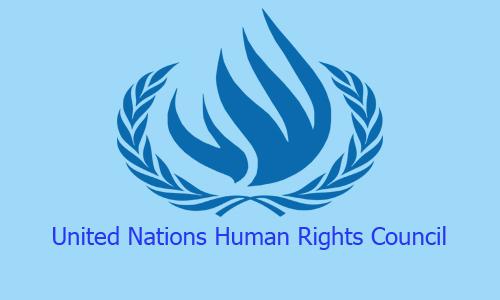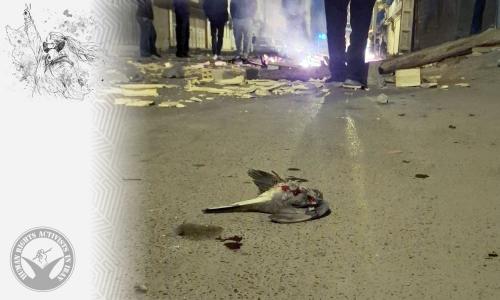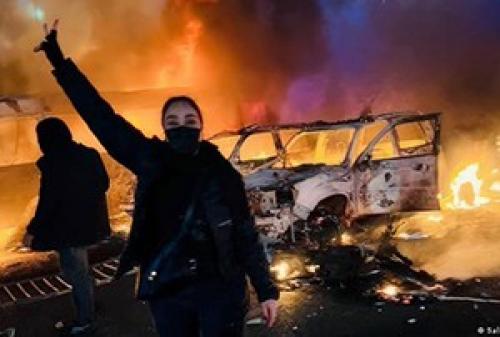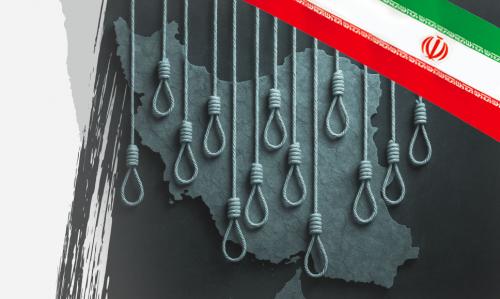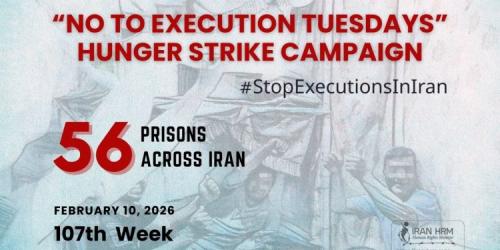29 May 2025 :
May 22, 2025 - UNITED NATIONS. Abolition of the death penalty at the United Nations Human Rights Council 58th session
The United Nations Human Rights Council met for its 58th Regular Session from February 24 to April 4, 2025. Here is what happened regarding the abolition of the death penalty
DURING THE DEBATES
During his Global Update, UN High Commissioner on Human Rights Volker Türk urged the Iranian authorities to place an immediate moratorium on the use of the death penalty, deeply troubled by the marked increase in executions over the last year, with over 900 reported cases. Watch it here.
During an Interactive Dialogue, the findings of the Independent International Fact-Finding Mission on the Islamic Republic of Iran (FFMI) were addressed and heard from the newly appointed Special Rapporteur on the situation of human rights in Iran, Dr. Mai Sato.
In a joint interactive dialogue, Dr. Sato presented her inaugural report (A/HRC/58/62), which insists that “the gendered dimensions of the death penalty merit specific attention and comprehensive analysis”, while the FFMI delivered the conclusions of its mandate report (A/HRC/58/63), alongside a comprehensive Conference Room Paper (A/HRC/58/CRP.1) published that same morning. The FFMI confirmed serious human rights violations, including arbitrary detentions, torture, ill-treatment, and unlawful deaths — both through extrajudicial killings and the application of the death penalty. Watch it here.
In parallel, more than 40 NGOs, including the World Coalition Against the Death Penalty and many of its member organizations, issued a joint statement calling on the Human Rights Council to extend the Special Rapporteur’s mandate and continue independently investigating serious human rights violations.
Marking a major step forward, the Council adopted a resolution (A/HRC/58/L.20/Rev.1) that not only renewed the mandate of the Special Rapporteur but also broadened the scope of the FFMI’s work. The expanded mandate enables UN investigators to examine ongoing and future human rights violations, and to continue gathering evidence with a view to supporting future legal proceedings against responsible individuals and institutions.
CIVIL SOCIETY ORAL STATEMENTS ON THE DEATH PENALTY
On the occasion of this 58th session, several members of the World Coalition Against the Death Penalty presented oral statements on the death penalty.
As the Biennial High-level Panel on the death penalty brought together panelists from various legal and governmental backgrounds to offer their insights into how the judiciary could further contribute to the abolition of the death penalty, it also offered civil society the opportunity to make valuable contribution. Watch it here.
Harm Reduction International (HRI), the FIACAT and Responsible Business Initiative for Justice (RBIJ), along with two other organizations, emphasized that drug offences are driving executions globally and that drug policy reform is instrumental to achieving total abolition of the death penalty. Ensemble Contre la Peine de Mort (ECPM) stressed how the death penalty targets above all the most marginalized and vulnerable categories of the population, as well as minorities and people with psychosocial or intellectual disabilities. The Advocates for Human Rights (TAHR) recalled the crucial role that the judiciary plays in combating gender discrimination by recognizing mitigating circumstances such as domestic violence, highlighting the importance of acknowledging gender bias when sentencing women. Reprieve has emphasized the importance of the role of judges in Kenya, as the insufficient consideration of gender-based violence (GBV) and the disparity inadvertently created by the judiciary when limiting the declaration of unconstitutionality to murder sentences only remain major issues.
Members organizations also delivered oral statements during the adoption of the Universal Periodic Review Outcomes of Brunei Darussalam, Equatorial Guinea and North Korea.
During the adoption of the Universal Periodic Review Outcome of Brunei Darussalam (A/HRC/58/12), The Advocates for Human Rights (TAHR) and the World Coalition co-delivered an oral statement expressing concern over Brunei’s use of the death penalty. Under the country’s Criminal Procedure Code, the death penalty remains mandatory in certain cases, and the Sharia Penal Code mandates the death sentence by stoning for offenses that do not meet the threshold for the most serious crimes, such as adultery, blasphemy, and consensual same-sex conduct. Brunei Darussalam noted all death penalty-related recommendations. Watch the intervention here.
During the adoption of the Universal Periodic Review Outcome of Equatorial Guinea (A/HRC/58/14), Amnesty International (AI) welcomed the acceptance of over 160 recommendations, including those calling for the removal of all provisions related to the death penalty from the Military Code. Amnesty International urges the government to fully implement the accepted recommendations, including by enacting the necessary legislation. Furthermore, Amnesty International encourages the government to continue working with civil society organizations to ensure the effective implementation of these recommendations. Watch the intervention here.
During the adoption of the Universal Periodic Review Outcome of North Korea (A/HRC/58/11), the Advocates for Human Rights (TAHR), the World Coalition and the Transitional Justice Working Group (TJWG) commended North Korea for accepting two recommendations regarding the death penalty for the first time in UPR history. Notably, Chile recommended to reduce the number of death-eligible crimes, while Belgium recommended to restrict the death penalty to crimes that meet the threshold of the most serious offenses under international law. TAHR, the Worl Coalition and TJWG emphasized the need for swift implementation of these recommendations. However, they also raised concern over the 88 recommendations noted by North Korea, which included all remaining recommendations related to the death penalty. Watch the intervention here.
RESOLUTIONS ADOPTED
The Human Rights Council adopted 32 resolutions and 13 decisions.
SIDE EVENTS
3 side events were organized by members of the World Coalition Against the Death Penalty.
A side event was organized by theDeath Penalty Project (DPP) and theDeath Penalty Research Unit (DPRU) on the Enduring nature of the death penalty under abolitionist de facto status.
A side event was organized by the Advocates for Human Rights (TAHR) about the Universal Periodic Review, with a focus on Gender Issues and Death Penalty in the States under Review in 2025.
A side event was organized by Ensemble Contre la Peine de Mort (ECPM) on the Universal Periodic Review and Situation of the Death Penalty.
The 59th regular session of the Human Rights Council is scheduled to take place in Geneva from June 16 to July 11, 2025.


